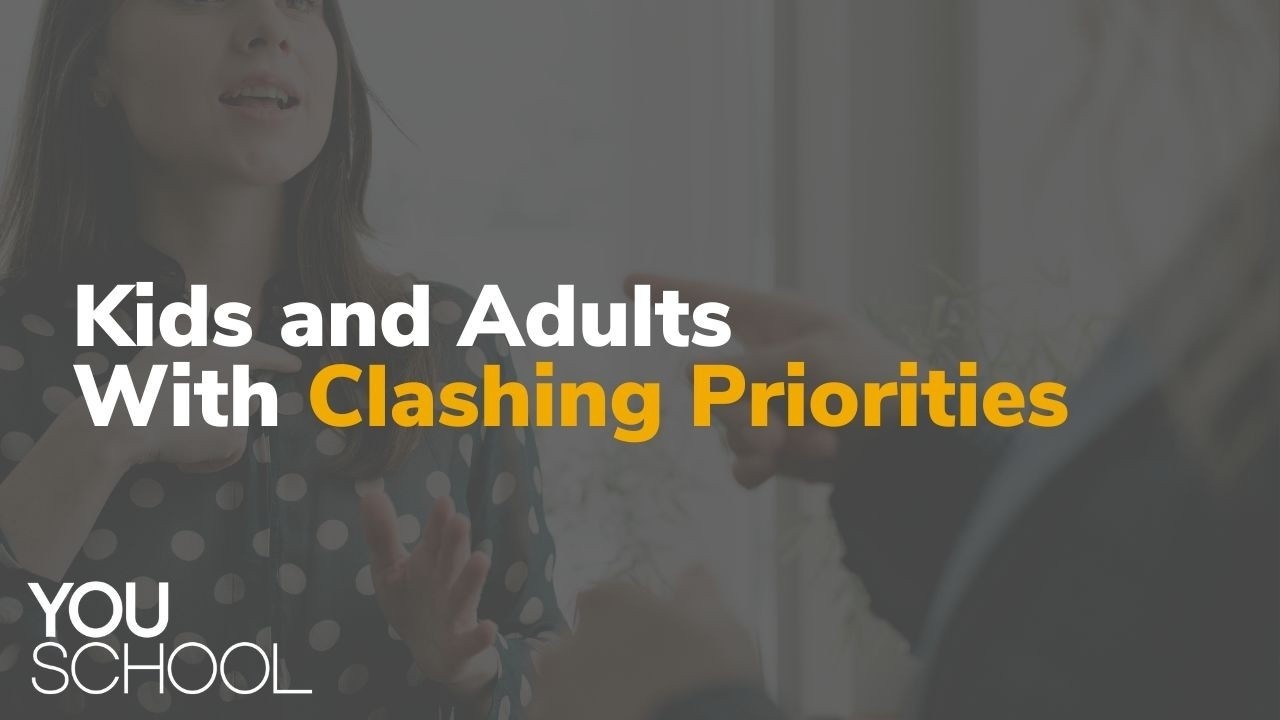Kids and Adults With Clashing Priorities

There's no shortage of conflict between teens and adults.
- "Clean your room!"
- "It's time to wake up!"
- "Get off your phone!"
- "Did you start your online driver's training yet?"
- "Did you eat the entire box of cookies?"
When it comes down to it, the majority of our interactions with teens are about conflict, specifically conflicting priorities.
We just returned from a few days of a family vacation, and, looking back, there were a few good moments to be sure. If I'm honest, though, those were the rare moments when all of our priorities were aligned. In other words, everyone got what they wanted. We saw a movie together—a movie everyone wanted to see. We had a fancy dinner one night—at a restaurant everyone likes. But, the rest of the time? Filled with conflict.
What, then, do kids want? Primarily, they want to make independent choices. They want to do what they want to do when they want to do it. As annoying as that can be, it's helpful to remember how critical that desire is for them from a developmental perspective. They need to learn how to govern their life for themselves, and deep inside they're driven towards independence.
There are a few problems with that, however:
- They don't live in a vacuum and they aren't independent yet. They need to learn to negotiate their priorities in the context of their responsibilities and their family.
- Their pre-frontal cortex isn't fully developed yet: which means they don't have the capacity to be as wise as they need to be to take on full responsibility for their lives.
- Their desire for thrill and dopamine: did you know the teen brain is especially sensitive to the brain chemical dopamine? They're pre-disposed to get a rush and will feel the rush
- Need for acceptance from peers: next to independence is their need to be with friends and find the acceptance they long for. That unmet need can lead them to sacrifice themselves, their values, and make poor choices.
- Lack of long-term thinking: they live in the moment, not ten to twenty years from now. They can't see how putting off SAT prep might impact their choices in a couple of years. They don't know how important it is to get a steady job and learn the life skills that come with employment. They don't understand how going to bed at three a.m. impacts their ability to focus and retain knowledge the next day.
Now, it's also important to take a look in the mirror, too. If I were totally transparent, I'd admit that I like to be in charge, too. I am fiercely independent, I have a lot going on, and I want all of our kids to get with my program. When it comes to clashing priorities, that's typically where the problem lies.
There's another level to it, though. When I see my kids make choices that I disagree with or don't understand, it triggers my anxiety. I worry if they'll ever take responsibility for themselves. I worry if they're getting lapped by their peers. I worry if they'll become pushovers or wallflowers. I worry if they'll ever become thoughtful and respectful. It's anxiety, plain and simple. And every time I choose to act out of my anxiety rather than take a step back and a deep breath, I make the conflict worse.
Clashing priorities with our kids is annoying, but it's part of the deal. Through conflict we both learn how to be in a family, stay committed to each other, and work through problems to find solutions that work for everyone. We learn to give and take, surrender when we need to, and own our desires, too. In other words, it's training for life.
Get the Critical Foundations Book!
A meaningful life doesn't happen by chance- it's something you plan for.
Sign up for our Critical Foundations Podcast & Curriculum.
Get Access to the Critical Foundations Podcast & Curriculum
